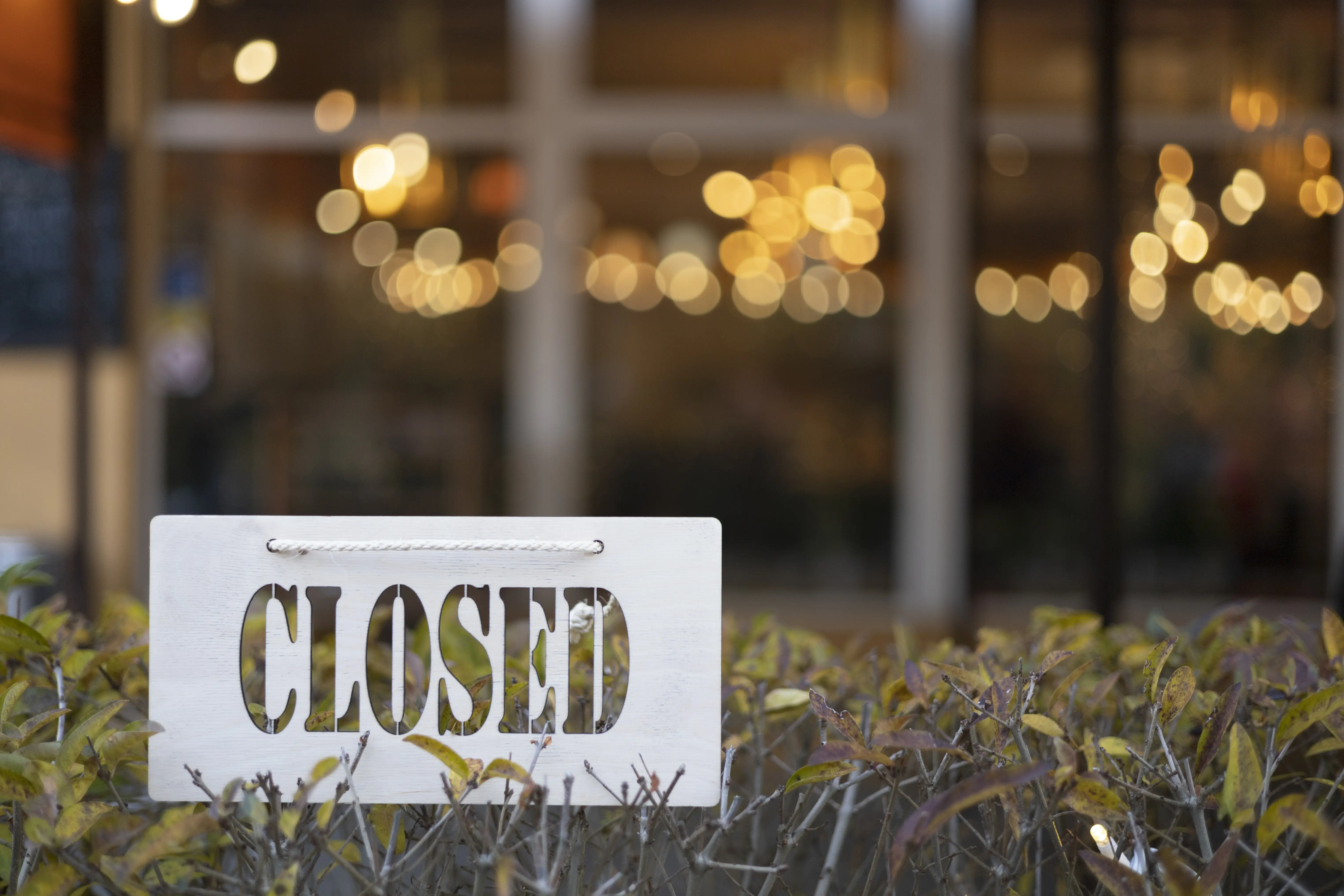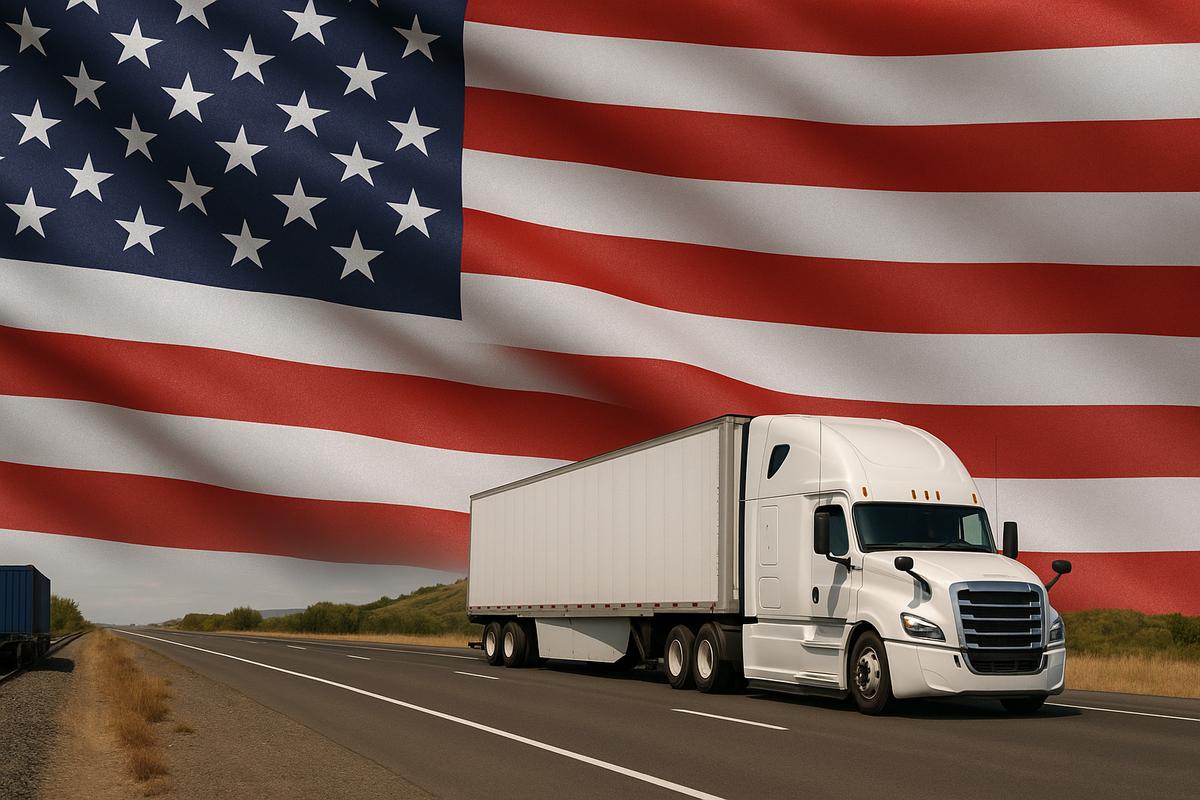Retail Closures Skyrocket in 2024: What Does It Really Mean to the Industry and Transport?

The year 2024 has turned out pretty nasty for the retail industry. In fact, more than 7,100 stores are bound to close down before the year is gone, which shows a surge of 69% over last year, per data from CoreSight. In addition, 45 retailers filed for bankruptcy protection compared with just 25 last year. While consumer spending remains strong in some areas, many major retailers are struggling to adapt, and this wave of closures is expected to have ripple effects not just for retail, but for the entire transportation industry as well.
Why Are So Many Stores Closing?
1. Inflation-Weary Shoppers
Despite the growth of the nation's economy, inflation has made shoppers more cautious. With increased prices, consumers have become more choosy, seeking sales and cutting discretionary spending. Target and Family Dollar are among retailers that have struggled to meet the needs of the now more price-conscious consumer, as both sales and profits fall. The result: they are closing locations by the dozens.
2. Shifting Consumer Preferences
The retail landscape is changing. Consumers are moving to online purchases and are seeking convenience. This is forcing the brick-and-mortar retailer to restructure their business models. Those that have not revamped their stores or their methods have begun to suffer now. Stores thought to be staples, such as CVS and Walgreens, have found themselves unable to meet the needs of their target demographic and have also been shuttered en masse.
3. Competitive Pressure
Those retailers that have not moved with the trends and innovations in the market have found competitors outpacing them. Several of the chains shutting down stores in 2024 have suffered from sluggish sales growth over the last many years, partly due to the fact that their merchandise, prices, and experiences offered in stores no longer match the expectations of shoppers. It's obvious with CVS Health that, despite being among leading companies in the industry for pharmacy, has suffered setbacks.
Impact on Retail Industry
This wave of closures also serves as proof that it is an extremely polarizing market; where some are quickly adapting and expanding, many more are struggling to survive. The main ones concerned would be:
1. Family Dollar closes 677 locations as under-invested stores simply are not capturing the attention of frugal consumers.
2. CVS Health: 586, making several communities witness historic declines in pharmacy counts that help perpetuate so-called "pharmacy deserts.".
3. Big Lots and Rite Aid: Both have been equally compelled to close hundreds of locations because they were too slow in adapting to evolving market circumstances.
A Growing Problem: Pharmacy Deserts
In other words, especially among less healthy communities, pharmacy closures are generating "pharmacy deserts" in these areas. Residents can no longer readily access prescription drugs or basic health supplies. The University of Pittsburgh reported more than 7,000 pharmacies closed nationwide since 2019 alone, meaning gaps in access to care in a multitude of communities.
Impact on the Transport Industry
The retail closures and store consolidations won’t just affect the companies involved—they will also have a significant impact on the transportation and logistics industries.
1. Decline in Retail Shipments
As major retailers close stores, freight volumes will decrease significantly. Less foot traffic in physical stores means reduced demand for restocking shelves, which directly impacts trucking and freight services. This could mean fewer loads for the carriers, which may translate to empty miles and inefficiencies that hurt profitability.
According to the FMCSA, trucks running without cargo (deadhead miles) account for as much as 30% of truck mileage in the U.S.. The problem might get worse, as fewer stores need restocking.
2. A Shift in E-Commerce Delivery Demands
Although e-commerce continues to boom, the shift from brick-and-mortar to online retail will drive last-mile delivery demands. Companies like Amazon and Walmart are investing heavily in their own delivery networks, further pressuring freight services for competition. Traditional retailers will also have to ramp up their online fulfillment, leading to more warehouse-to-consumer shipments and the need for efficient, cost-effective transportation solutions.
3. Potential for Supply Chain Disruptions
Freight brokers and other logistics providers may experience setbacks as they work to make the necessary changes in services to meet changing demands. With fewer retail locations where regular shipments are needed, transportation providers will have to find other partnerships or new freight lanes, which can take significant time and resources. Closures of distribution centers at various locations could also leave supply chains with inefficiencies-which may mean longer-than-usual transit times or higher shipping costs.
The Future of Retail and Transportation
Though the retail market will stabilize over the next few years, store closures and the switch to online shopping will continue to have an impact on retailers and transportation providers alike. The retailer will have to become much more agile in switching focus to e-commerce, curbside pickup, and new models of delivery due to changing consumer demand. For the transportation industry, this means adapting to new patterns in shipping, including greater emphasis on last-mile delivery, and exploring ways to optimize routes and reduce deadhead miles.
Moving into 2025, further closures, restructurings, and growth in e-commerce will continue to reshape the logistics and transportation landscape. It's not a question of whether or not change is coming but how well businesses can adjust to this shifting reality.
Closing thoughts
The retail closures create challenges and opportunities for the transportation industry. Fewer retail locations may seem at first glance like a loss for freight services, but the shift to e-commerce fulfillment and last-mile delivery presents new growth opportunities for logistics companies ready to adapt. Retailers and transportation providers alike must remain agile and responsive to a fast-changing marketplace.
What are your views on the impact of retail shake-up on the transport sector? Let's discuss!
 29 Sep 2025
29 Sep 2025
The future of logistics automation: AI, Tracking & predictive analytics
The logistics industry is undergoing a technological transformation. Supply chains are becoming more complex, while customers demand speed, accuracy,…
Read More 24 Sep 2025
24 Sep 2025
Transparency in logistics = Customer trust
In logistics, speed and accuracy of delivery are essential. But today, customers expect more: they want full transparency at every stage of transport…
Read More 22 Sep 2025
22 Sep 2025
5 Steps to building a reliable supply chain in the USA
A reliable supply chain is the foundation of a stable business. In today’s world of constant market changes, global challenges, and seasonal fl…
Read More